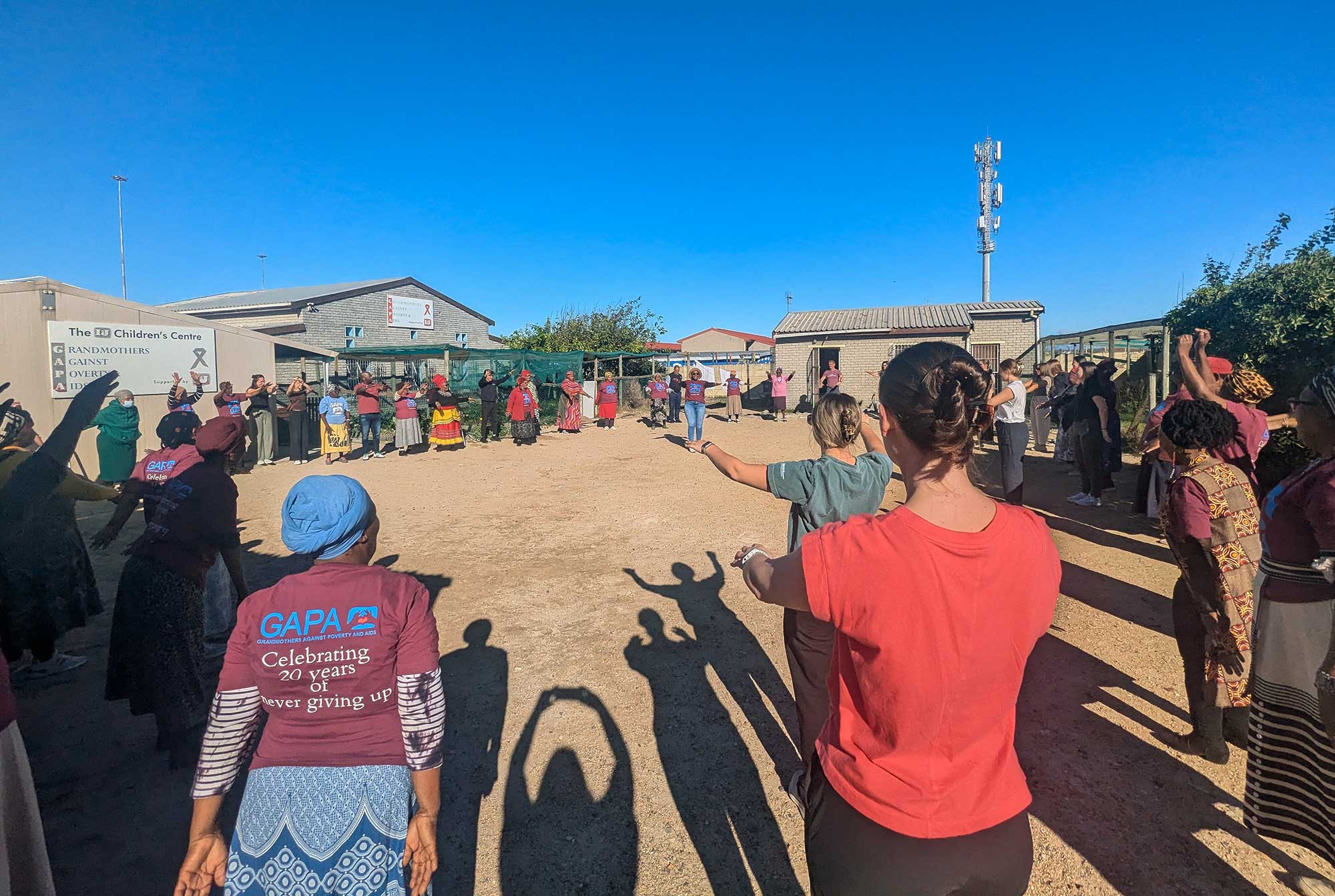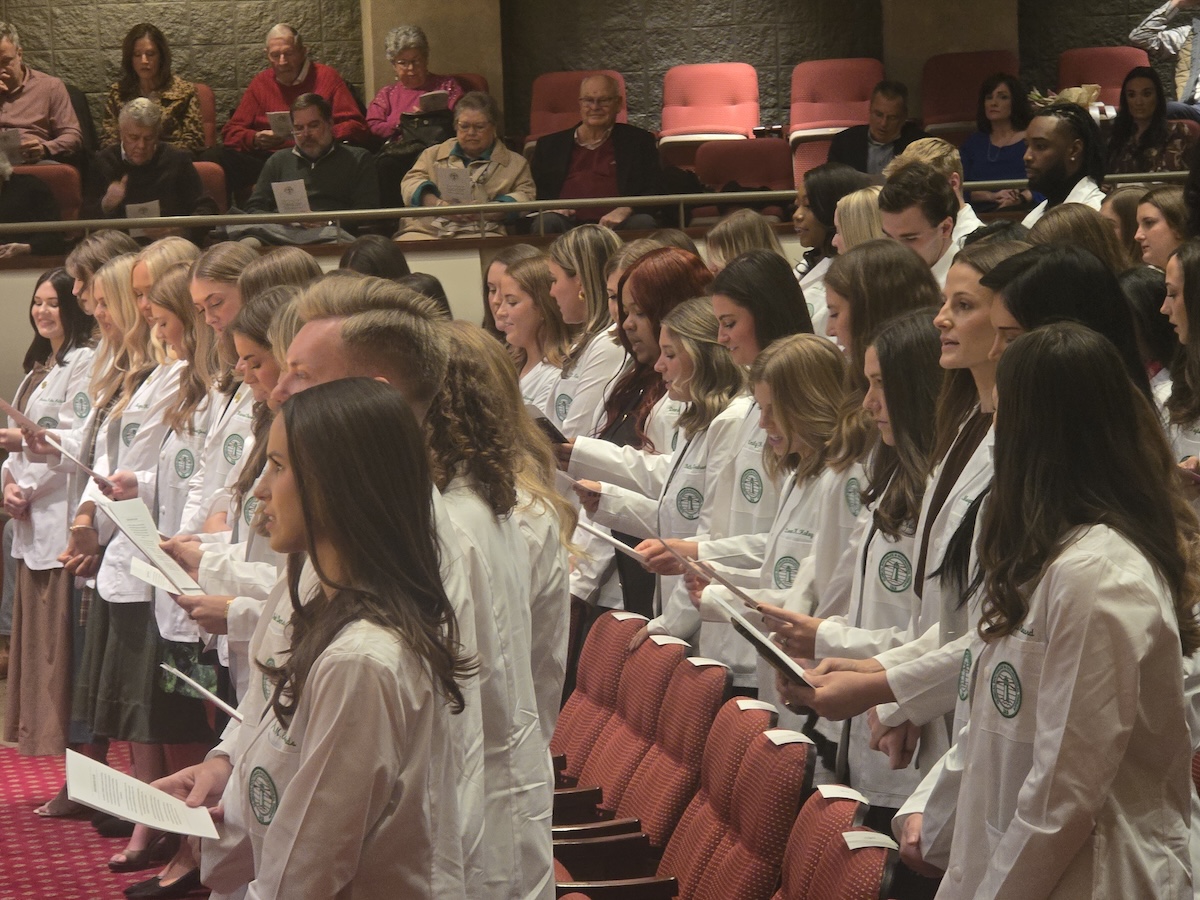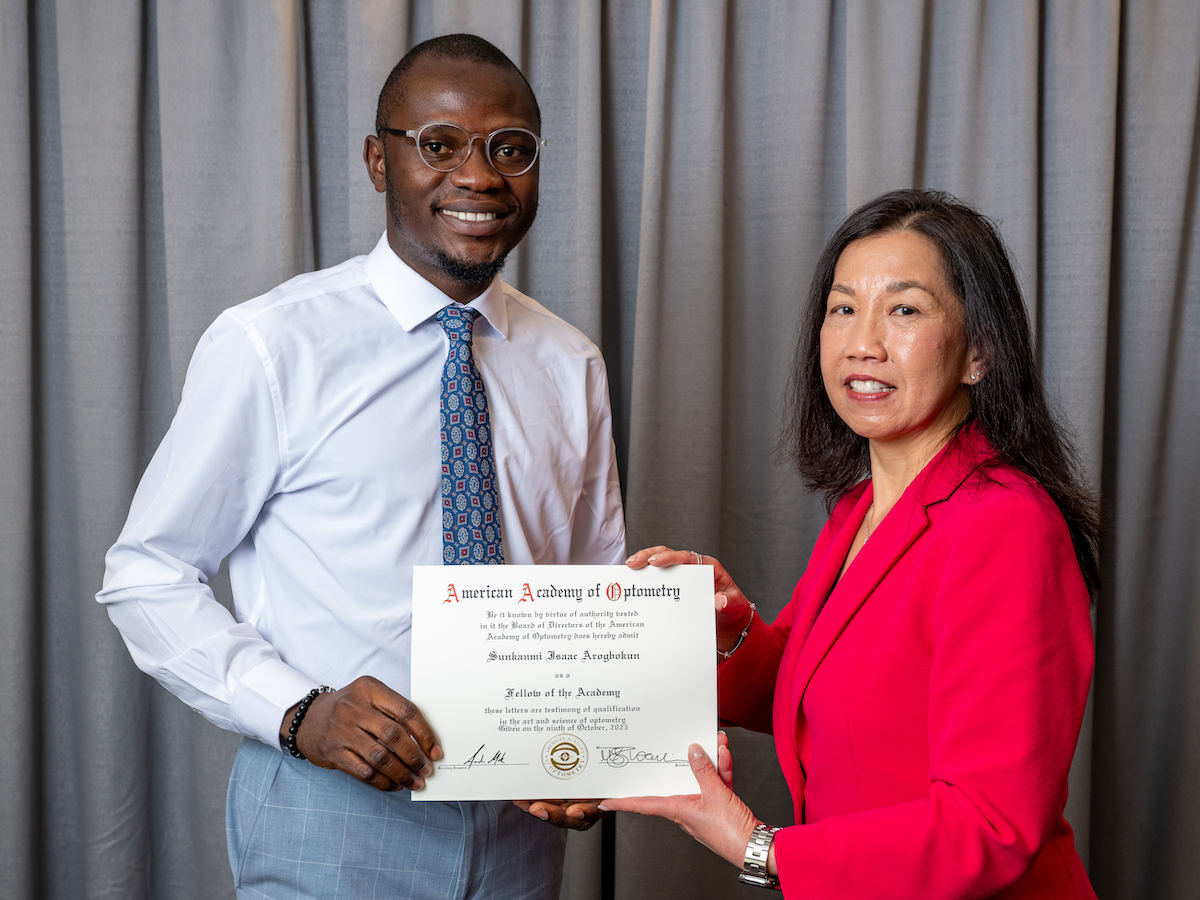What happens when occupational therapy students step out of the classroom and into a world thousands of miles from home? A recent trip to South Africa offered 11 entry-level OTD students and four faculty from the UAB Department of Occupational Therapy a chance to find out—and the opportunity to explore occupational therapy through the lenses of a culture and history with both striking differences and similarities to their own.
The group arrived in Cape Town on April 29, and spent the next 10 days engaged in conversations about occupational justice, explorations of places and systems shaped by the country’s complex past, and firsthand encounters with the many ways South Africans live and work.
Assistant Professor of Occupational Therapy Rachel Ashcraft documented the experience daily, capturing moments of discovery and the stories behind them. Below is one of her entries. To read more, visit the OT Abroad blog.
May 6: GAPA & The Power of Community: Connecting Through Shared Occupation
 The UAB OT Education Abroad group joined the Grannies of GAPA in the organization's Tuesday Health Club, where exercises support strength, balance, and continued engagement in community workBy Rachel Ashcraft, MS, OTR/L, TBRI® Practitioner, FAOTA
The UAB OT Education Abroad group joined the Grannies of GAPA in the organization's Tuesday Health Club, where exercises support strength, balance, and continued engagement in community workBy Rachel Ashcraft, MS, OTR/L, TBRI® Practitioner, FAOTA
Today, we had the honor of spending time with the incredible community at Grandmothers Against Poverty and Aids (GAPA), located in the township of Khayelitsha. GAPA is a grassroots organization formed by grandmothers who were left to care for their grandchildren after losing their own children to AIDS-related illnesses before the availability of antiretroviral treatment. Today, GAPA includes more than 600 seniors, including grandfathers, who come together in self-help groups to promote healthy living, community support, and economic sustainability. They also operate an aftercare program that provides daily meals and support for more than 100 children.
As we drove into Khayelitsha this morning, we were struck by the vast sea of mostly tin structures stretching out in every direction. We learned that the township was established during Apartheid as a result of the Group Areas Act —and, while Apartheid may no longer be the law of the land, its legacy still deeply affects the community. Today, the oppression once enforced by policy continues through poverty.
Upon arrival, we were warmly welcomed by the Grannies with singing and dancing. They invited us to join their Tuesday Health Club, starting with group exercises outdoors. Many of the Grannies were better at touching their toes than some of us! Afterwards, we gathered inside for connection time, where we deepened our understanding of GAPA’s mission and the people who bring it to life. We danced, sang, shared stories, and ate together. Their hospitality moved us deeply. As one of them said, “We break bread—what little we have, let us break it together.”
‘Learning to Unlearn’
Vhuhwavho, the occupational therapist at GAPA, spoke with us about the importance of listening to community leaders. She encouraged us to “learn to unlearn” and demonstrated the power of community-led occupational healing. The Grannies openly shared the joys and struggles they experience in their families and neighborhoods, and how GAPA brings light and support into their lives.
The Grannies also create beautiful, handcrafted items—clothing, jewelry, stuffed animals, and other crafts—that they sell to help sustain their programs. For many children, the meals they receive at GAPA may be the only food they get that day. The revenue from craft sales helps provide food for both the children and the Grannies' families. After-school care is offered for just $1 a month—made possible by the income from these handmade goods.
Each afternoon, around 100 children arrive at GAPA for after-school care while their parents work. Today, our students supported the GAPA staff in caring for the children. Their energy and joy left a lasting impression on all of us. We were joined by world-renowned occupational therapist Dr. Frank Kronenberg, who spent the day with us and later led our students in thoughtful reflection on the experience.
Words can’t fully capture what today meant. Our minds and hearts were expanded in ways that are hard to describe. Every moment of shared occupations, like dance, song, meals, play, and movement, was a lesson in the power of community. In these profound moments, connection and wisdom flowed from the Grannies to us.
What we can say is this: we grew in our understanding of the power of shared occupation and the healing that is possible when a community lives by the mantra of GAPA, that “Together, we are stronger.”

